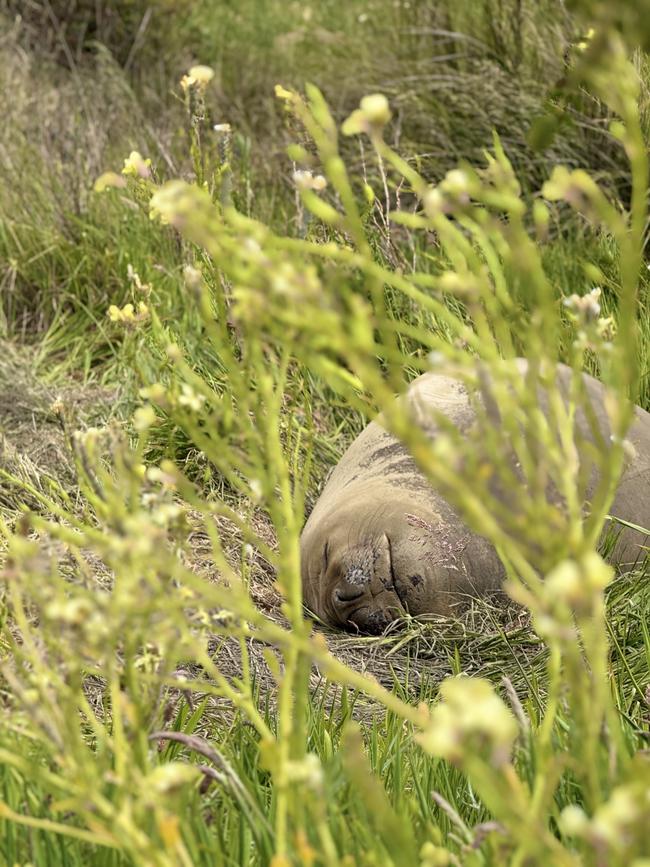Neil the seal back ashore after months at sea prompting warning to leave him alone
He attracts attention wherever he goes but authorities are warning Tasmanians to leave Neil the seal alone. Read why.
Tasmania
Don't miss out on the headlines from Tasmania. Followed categories will be added to My News.
Tasmania’s beloved Neil the southern elephant seal is ashore again after months at sea - prompting a warning from authorities to leave him alone.
Police on Saturday advised his location on Tasman Peninsula road asking motorists to “approach the area with caution”.
The Department of Natural Resources and Environment Tasmania’s Marine Conservation Program confirmed it was monitoring the seal and resting on shore was normal seal behaviour.
“The seal is ashore to rest and moult after many months at sea hunting food and should be left alone,” a NRE spokesman said.

“The public is asked to stay away for seal welfare and human safety reasons.
“If people do happen to come across the seal, please do not share its location.
“People ‘visiting’ this seal creates safety risks for the seal and humans, can cause traffic issues, disrupt nearby residents and affect the seal’s long-term behaviour and survival.”
The spokesperson said a wide open mouth was “not yawning or playing, it is a sign the seal is feeling threatened and to move away”
“Wild animals are unpredictable and can be dangerous if harassed.”
Anyone who comes across the seal is advised to stay at least 20m away and keep dogs leashed and at least 50m away.

Award-winning Tasman Peninsula photographer Jules Witek said a friend called when he was alerted to a police and a number of cars near his home on Saturday.
Mr Witek used a zoom lens on his camera to get a video and photos of Neil.
“I was across the road and Neil was just very relaxed and very snoozy,” he said.
“He just wanted to have a sleep.
“He just rolled over on his side and blew the flies away.”
Mr Witek said Neil appeared to enjoy being near his “homeland on the Peninsula”.
Sightings or concerns about the seal can be reported to the marine mammal hotline on 0427 WHALES (0427 942 537).





